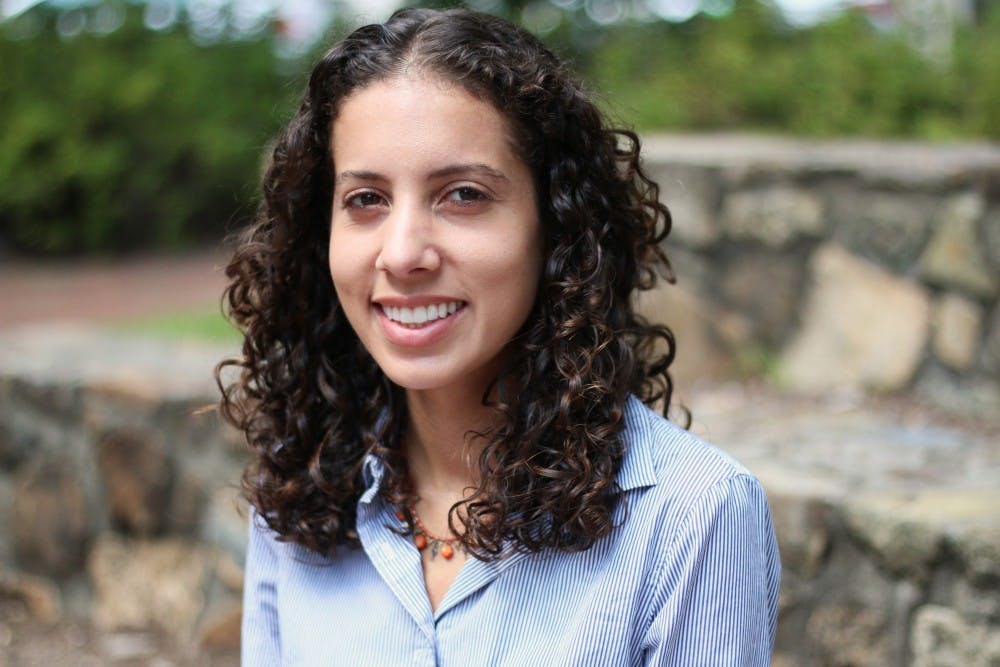Sarah Mills, a second-year postdoctoral trainee at the Lineberger Comprehensive Cancer Center, is one of the five 2018 fellows from the Carolina Postdoctoral Program for Faculty Diversity.
CPPFD aims to further the career development of postdoctoral students from diverse backgrounds, with the aim of preparing participants for tenure-track positions at UNC and increasing retention rates for diverse doctoral students and postdocs.
“There are many reasons, one is systemic racism, historically and today, which has resulted in a lack of faculty diversity," Mills said. "Also, the percentage of Ph.D.s that come from diverse backgrounds is low and not proportional to that of the U.S. population. Faculty and institutions of higher education are typically recruited from these Ph.D. pools, so it shouldn’t be surprising that the proportion of underrepresented groups among faculty is also low.”
Before coming to UNC, Mills received a Ph.D. in clinical psychology from a joint program between San Diego State University and the University of California, San Diego, while at the same time receiving a Masters of Public Health in epidemiology. Mills completed a full-time clinical internship during the last year of her doctoral program.
Throughout Mills’ time in clinical settings, she noticed the need for diversity in healthcare and public health research. When conducting research at Bellevue Hospital in New York City, Mills observed that Spanish-speaking adults received more appropriate care interventions at in-patient psychiatric wards where a Spanish-speaking psychiatrist was assigned compared to the wards without a Spanish-speaking psychiatrist.
For Mills, this affirmation of the critical need for diversity among health care providers is equally imperative in the sphere of public health and accompanying areas of academic study.
“It’s critical that the entire public is served and that those who work in this field and are attempting to improve public health understand the needs of all parts of the population,” Mills said. “This can’t be done without having a diverse public health workforce, which includes faculty and academia. Diverse faculty are able to meaningfully affirm to students the value of recognizing and understanding different perspectives of a diverse population in order to improve public health.”
Mills’ faculty mentor at the Lineberger Center, Kurt Ribisl, who initially suggested she apply to CPPFD, remarked on the program’s importance for increasing faculty diversity at UNC.
“Often, we train people as graduate students and postdocs, and they’re amazing and then they depart and go off to other universities. This program allows us to retain some of the great people we’ve had a chance to work with,” Ribisl said.



